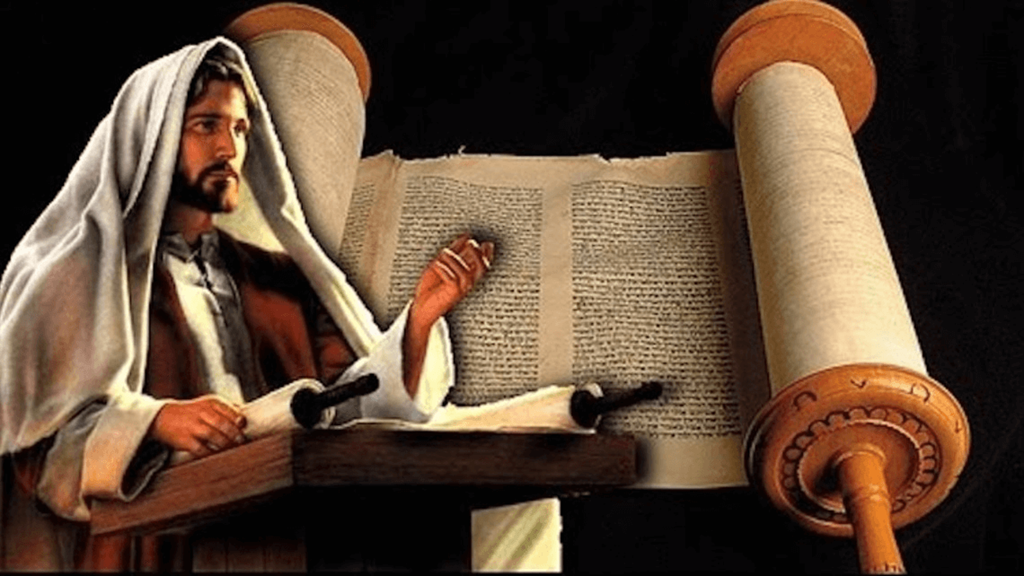
13 Jan How Did Jesus Fulfill the Law of Moses
The relationship between Jesus and the Law of Moses is an important topic in Christian theology. As the promised Messiah, Jesus came to fulfill the Law and the Prophets (Matthew 5:17). This article will examine how did jesus fulfill the law of moses and discuss the continuing relevance of the Law for Christians today.
The Purpose and Function of the Mosaic Law
First, it is helpful to understand the background and purpose of the Mosaic Law. When God freed the Israelites from slavery in Egypt, He made a covenant with them and gave them the Law through Moses (Exodus 19-24). The Law of Moses consists of over 600 statutes governing Israel’s moral, judicial, and ceremonial life.
The Law served several important functions:
- It revealed God’s holy character and righteous standards. The Law exposed human sinfulness and guilt before God (Romans 3:19-20).
- It provided moral guidance for God’s people. The Ten Commandments and other laws provided instructions for living righteously (Exodus 20:1-17).
- It regulated communal life. Various judicial laws helped Israel function as a theocratic nation in its land (Exodus 21-23).
- It instituted a system of atonement. The ceremonial laws provided a means for making sacrifices and receiving forgiveness (Leviticus 1-7).
The Law also foreshadowed and prepared the way for the coming of Christ. The animal sacrifices pointed forward to Christ’s ultimate sacrifice, and the purity laws showed the need for inner moral cleansing.
How Did Jesus Fulfill the Righteous Requirements of the Law?

In the Sermon on the Mount, Jesus declared, “Do not think that I have come to abolish the Law or the Prophets; I have not come to abolish them but to fulfill them” (Matthew 5:17). Although Jesus abolished the ceremonial laws through His death and resurrection, He fulfilled the righteous requirements and moral principles behind the Mosaic Law in several powerful ways:
1. Jesus fulfilled the moral law through His sinless life.
Though we have all sinned and fall short of God’s standards (Romans 3:23), Jesus perfectly obeyed the Law during His life on earth. He challenged His critics, “Can any of you prove me guilty of sin?” (John 8:46). His sinless life accomplished what the Law demanded but could never achieve through human effort.
2. Jesus fulfilled the Law by affirming God’s original intent.
At times, Jesus clarified the meaning of the Law by underscoring its original purposes. For example, regarding divorce Jesus appealed to God’s ideal “from the beginning” (Matthew 19:8). He focused on the heart motivations behind murder and adultery (Matthew 5:21-30). Jesus stressed inward devotion to God’s kingdom rather than superficial obedience (Matthew 23:23).
3. Jesus fulfilled the Law through His teachings.
Going beyond surface obedience, Jesus called for wholehearted commitment to God’s values. He insisted that His followers go above the requirements of the Law by loving their enemies, refusing retaliation, and pursuing reconciliation (Matthew 5:38-48). Jesus’ teachings reveal the heart of God’s law.
4. Jesus fulfilled the Law by bearing its curse on our behalf.
The Law required penalties for disobedience, ultimately condemnation and death (Deuteronomy 27:26; Romans 6:23). By dying on the cross for our sins, Jesus took upon Himself the curse we deserved because of our violation of the Law (Galatians 3:10-13). His sacrifice achieved atonement and forgiveness. The demands of the Law were fully satisfied through Christ’s substitutionary death.
5. Jesus enables His followers to fulfill the Law.
The New Testament emphasizes that true obedience comes through the power of the indwelling Holy Spirit, not through self-effort (Romans 8:3-4). As believers yield their lives to Christ’s authority, He lives His righteous life through them. Jesus condemned outward legalism and enforces God’s Law “from the inside out” when we walk by the Spirit (Matthew 23:25-26; Romans 8:4).
In summary, Jesus perfectly met the righteous standards of the Law of Moses. His sinless life, teachings, death and resurrection all fulfilled what the Law pointed toward. Because of Christ’s accomplishment, we are freed from the burden of trying to earn righteousness through Law-keeping (Romans 10:4). The Law fulfilled its purpose by bringing us to Christ (Galatians 3:24).
How Should Christians Relate to the Moral Law Today?
Does the Mosaic Law have any continuing relevance for believers in Christ? Jesus and the New Testament authors affirm the ongoing authority and value of the moral law contained in Moses’ law.
Though we are not under the Law as a means of justification (Romans 6:14), Jesus calls us to righteousness that “surpasses that of the scribes and Pharisees” who focused narrowly on legalistic obedience (Matthew 5:20). Here are some principles for relating to the moral law as Christians:
- The moral commandments reflect God’s character and remain binding on believers in Christ. For example, all nine of the Ten Commandments are reaffirmed in the New Testament except the Sabbath regulation.
- The Old Testament moral laws illustrate principles for holy living and provide insight for modern ethics. Though situations change, the underlying moral principles remain. For example, the ban on usury (excessive interest) illustrates concern for the poor.
- The teachings of Jesus and the New Testament letters apply and amplify the moral laws around issues like anger, lust, divorce, revenge. They emphasize inner motives and attitudes.
- Obedience to the moral law shows our love for God, provides a witness to unbelievers, and benefits human society. The law shows us how to “love your neighbor as yourself” (James 2:8; Galatians 5:14).
- No one can earn salvation by following the Law. Obedience should flow from love and gratitude to God rather than legalistic compulsion (Romans 13:8-10).
In summary, the moral aspects of the Mosaic Law remain in effect as interpreted through the life and teachings of Jesus Christ and the entire New Testament. This fuller revelation represents the true spirit of the law rather than the letter. Loving God and neighbors sums up the law’s original meaning (Matthew 22:34-40). Through the Holy Spirit, God writes His law on believers’ hearts freeing us to fulfill it (Jeremiah 31:33; Romans 8:4).
The Ceremonial Laws and the New Covenant

In contrast to the permanent moral law, Christians see the ceremonial and civil laws of ancient Israel as no longer binding. For example, Hebrews explains that Christ’s death and heavenly priesthood fulfills and supersedes the temporary Levitical system of priesthood, sacrifices, tabernacle and dietary regulations that symbolically pointed to Him (Hebrews 7-10). Paul makes clear that circumcision, festivals and Sabbath laws no longer apply (Colossians 2:16-17). These ceremonial laws served as “shadows” and “a copy” of greater spiritual realities now found in Christ (Hebrews 8:5; 10:1). Their purpose was fulfilled when the new covenant was established through Jesus Christ.
In conclusion
Jesus fulfilled the Law of Moses in multiple ways. He upheld the righteousness it demanded. He clarified its core principles and intent. He bore its curse. And He empowered His people to obey God’s standards from the heart by grace rather than natural effort.
The moral law remains a wise guide for pleasing God and maintaining Christian witness. The ceremonial laws served their role in pointing to Christ. Their completion in Him indicates that believers are not under the old covenant, bound by its observances, but under the new covenant of God’s grace.
The Law brings awareness of sin and shows that we cannot earn righteousness before God. Like a mirror, it confronts us with our need for cleansing and dependency on Christ’s atoning sacrifice. All Scripture testifies about Jesus Christ. He is the goal and fulfillment of the Law and the Prophets.
Frequently Asked Questions
Q: What is the relationship between the Mosaic Law and God’s moral law?
A: The Mosaic Law contains God’s moral standards as exemplified in the Ten Commandments. These reflect God’s unchanging righteousness. The moral law reveals His character and continues to instruct us in holy living.
Q: If Jesus fulfilled the Law, does that mean Christians don’t have to obey the Ten Commandments?
A: No, Jesus affirmed the ongoing importance of God’s moral law. His teachings in the Sermon on the Mount require His followers to obey the moral law at a heart level rather than mere outward compliance.
Q: Why don’t Christians continue to observe the Sabbath regulations and other ceremonial laws?
A: Christians see the ceremonial laws and sacrificial system as fulfilled in Christ Himself. The new covenant initiated through Christ’s death rendered those symbolic laws and rituals obsolete.
Q: Does God’s law show people their need for Christ?
A: Absolutely. The Law makes us aware of our sin, guilt and inability to earn righteousness before God. It leads us to cry out to God for mercy and points us to dependence on Christ’s atoning sacrifice for forgiveness and a right relationship with God.
Q: How can Christians today fulfill the righteous requirements of God’s law?
A: Only through the power of Christ living in believers by His indwelling Holy Spirit. As we submit to following Jesus in faith and obedience, He changes our hearts and enables us to exemplify the spirit behind God’s commands in our attitudes, words and actions.

No Comments